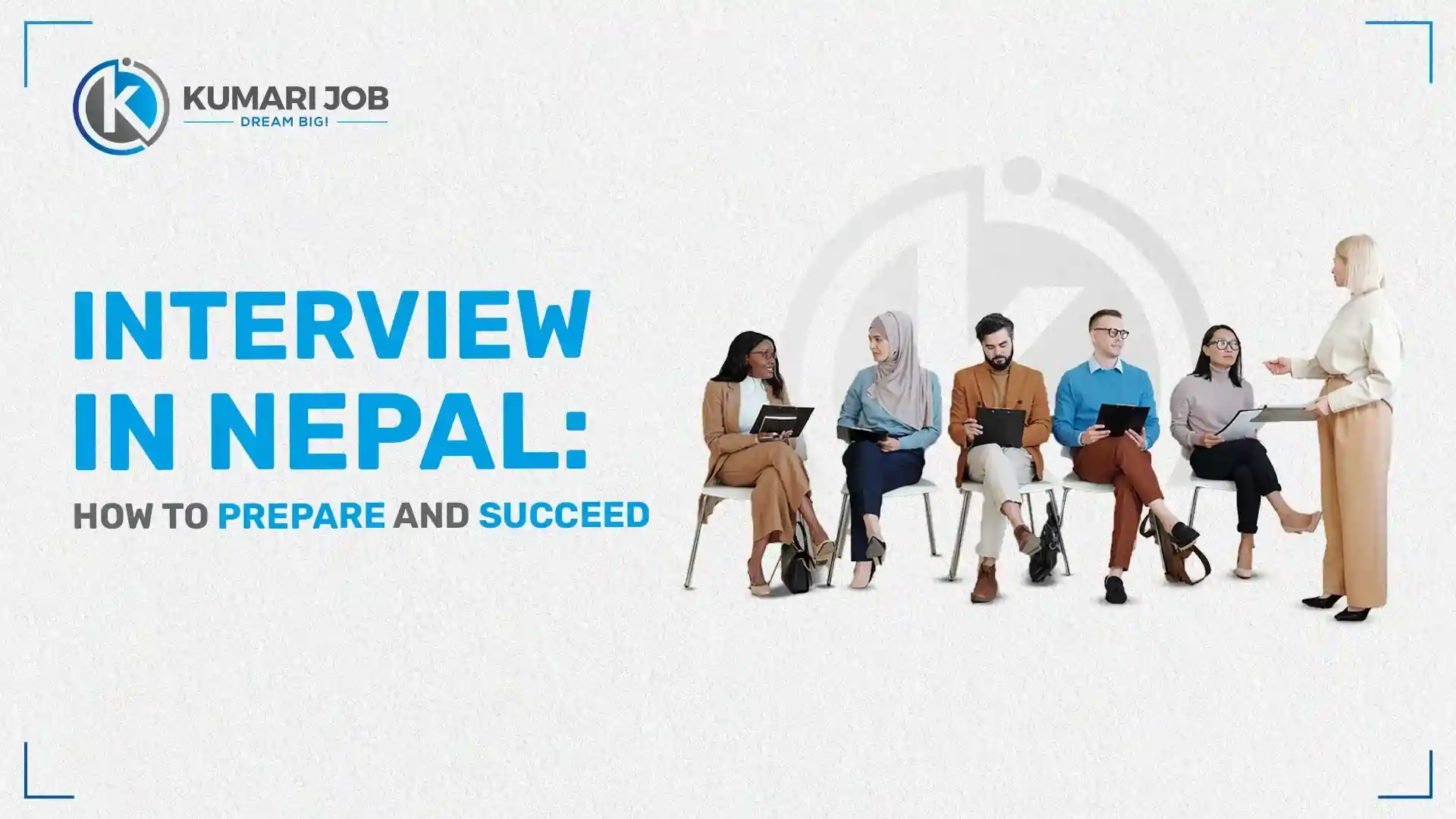
Getting a job in Nepal is not just about having a good CV; it is all about passing the interview rounds. Interviews are intimidating and confusing for many Nepali people, especially if it's your first time. But don't worry. With proper preparation, you can walk into the interview room with confidence. The job interviews in Nepal are becoming more competitive as it is no longer enough for the job seekers to have academic grades only. Now, everything from your personality, communication, and attitude matters.
In this guide, we will get you ready for interviews in Nepal. We will cover what to expect, how to prepare, common questions, what not to do, and follow-up. If you're a fresher or looking to apply for your next big opportunity, this blog will help you enter the interview room with confidence and prepare for real job opportunities in Nepal.
In this blog
- What to Expect in a Job Interview in Nepal?
- How to Prepare for a Job Interview in Nepal?
- Common Interview Questions in Nepal and How to Answer Them
- Tips to Impress Your Interviewer
- Which Mistakes to Avoid During an Interview in Nepal?
- Why Do Interviewers Reject Candidates in Nepal?
- Follow-Up After the Interview
- Conclusion
- Frequently Asked Questions
What to Expect in a Job Interview in Nepal?
If you're scheduled for a job interview in Nepal, it would be helpful to know what the experience is like. Interviews can vary by organization, industry, and position, but there are some things that you can expect. Let's go through them one at a time.
1. Types of Interviews in Nepal
Interviews in Nepal are typically held in three major types:
Conventional interviews: These are the most common. You are requested to visit the company or office for an in-person meeting. These are more formal and allow the interviewer to observe your body language, communication, and presentation.
Phone interviews: Some companies, especially large corporations or international organizations, may conduct a short phone interview as the first screening. This is usually to assess your basic communication, availability, and interest in the job.
Online interviews (Zoom, Google Meet, etc.): Online interviews are now trendy after COVID-19. Most IT companies, remote positions, and even banks occasionally conduct video calls as an interview. You need to test your internet, camera, and microphone prior to the call.|
Each form has its own tone, but the objective is the same: to see whether you're the correct person for the job and company.
2. Interview Format: One-on-One, Panel, or Group
One-to-one interviews: Here, you are interviewing with one person, typically the HR person or departmental head. It feels like a conversation and is easier for most people to manage.
Panel interviews: You interview with two or more people simultaneously. It may include HR, your future manager, and in some cases, a senior manager. Panel interviews are commonly used in banks, NGOs, and government jobs.
Group interviews: Less common but also used in sales or customer service roles. With this kind, two or more applicants are interviewed at the same time. You may have to introduce yourself, engage in a group activity, or be questioned one-on-one.
Don't panic if you're being subjected to a panel or group. It's just a different setup, not harder than a one-on-one.
3. Duration and Location
Nepalese interviews are usually 15-45 minutes, depending on the position. Early-round interviews might be short, just to screen candidates. Final-round interviews may be longer and include more detailed questions or exercises.
The setting may be:
A formal office room (banks, corporations)
A casual meeting room (in startups)
Or even virtually from your own house
Make sure that you arrive 10–15 minutes beforehand if it is face-to-face, and test the sound and camera if it's online.
4. Language Preference
Interview language differs in Nepal depending on the industry. Banks, international NGOs, IT companies, and corporate offices speak English. You don't require flawless English, but having a minimum proficiency and confidence actually works.
Nepali is prevalent in government positions, local businesses, and a few old-time businesses. If you feel more at ease speaking Nepali, there's no harm in asking if you can use Nepali while interviewing, as many interviewers do permit it. Sometimes, interviews take place using a combination of both languages. Be prepared to switch back and forth as required.
How to Prepare for a Job Interview in Nepal?
To prepare for an interview in Nepal, you have to research the company, understand the job role, match it with your skills, prepare all the documents, and dress professionally as per the sector. Having these main things correct will help you be prepared and confident for the interview.
Let’s go through each step in detail:
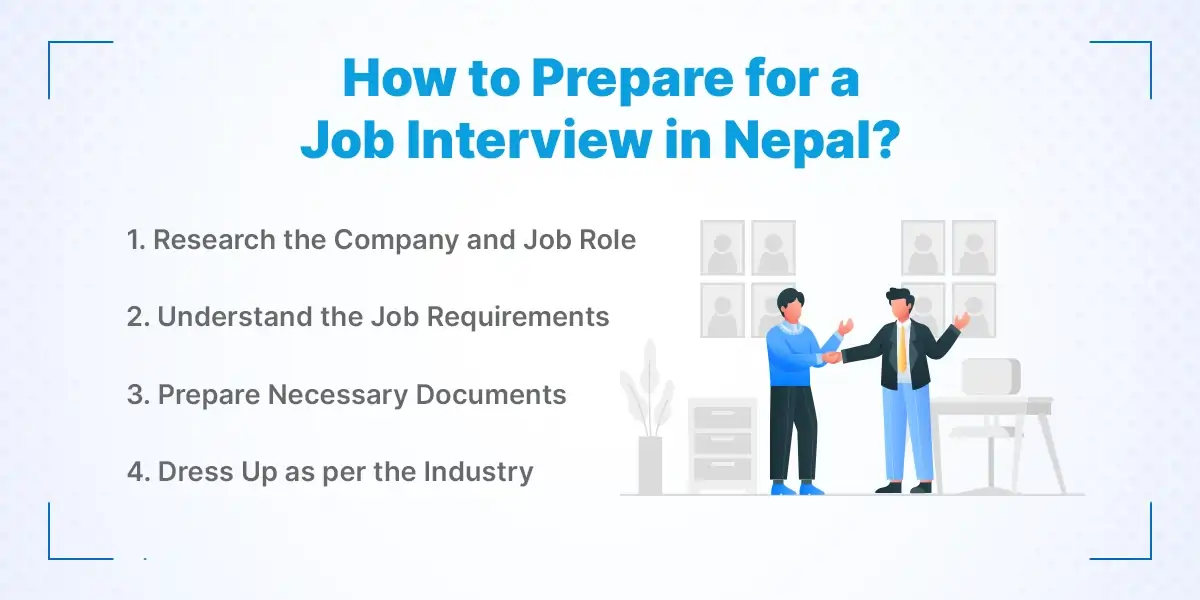
1. Research the Company and Job Role
Before attending any interview, spend some time learning about the company. The majority of candidates in Nepal fail to do this, which is a fundamental mistake. Interviewers typically ask, "What do you know about our company?" or "Why do you want to work for us?" You won't be able to answer this if you don't research the company well. It shows a lack of interest.
This is how you can research:
Visit the official website
Check their social media accounts (most importantly, Facebook and LinkedIn)
Look at the job vacancy advertisements or the job description
Take a look at what kinds of products, services, or projects they do
Make an effort to discover what their values, working environment, and customers are
This thorough research helps you speak confidently and show that you have done your homework. It also allows you to ask better interview questions.
2. Understand the Job Requirements
Every job requires some qualifications, skills, and responsibilities. Read the job description carefully. Try to understand these things:
What are you going to do?
What experience or skills do they want?
Whether it's a technical or customer service/support job?
Now that you understand this, look at your own background. How does your education, training, or past experience match up with the job? Create a list of:
Skills you already have that fit the job
Examples or achievements you can reference to show your experience
New skills you're willing to acquire in the job
This step helps you answer questions like "Why should we hire you?" or "What do you bring to this job?" confidently and accurately.
3. Prepare Necessary Documents
In Nepal, showing up at the interview with the right documents indicates seriousness and preparation. Carry a file with:
Updated CV/Resume – Make it clean, recent, and job-relevant
Cover Letter (if required) – Especially for jobs in banks, NGOs, or the formal sector
Photocopies of academic certificates – SLC/SEE, +2, Bachelor's, Master's (if required)
Training or skill certificates – Like computer classes, internships, workshops
Work experience letters – If you have work experience already
Portfolio – If you're applying for jobs like graphic design, content writing, developer, architecture, etc.
Also, carry a pen, a notepad, and some passport-size photos for a copy in case you need to fill out forms later.
Helpful Blog: How to Write a Job Application Letter for a Bank in Nepal
4. Dress Up as per the Industry
Impressions are important in interviews. In Nepal, most of the candidates lose marks just because of inappropriate dressing. You do not have to dress in a suit every time, but you definitely have to be clean, neat, and professional.
Here is a quick overview:
For Banks, NGOs, the Government, and Corporate Sectors, a formal dress code is mandatory. Men can wear a shirt, pants, clean shoes, and an optional tie or jacket. Women can go for a sari, formal kurtha suruwal, or a simple outer and pants.
For IT, Creative, or Startup Work, you can wear semi-formal or smart casual. Be tidy, well-groomed, and avoid wearing flashy or overly casual attire (such as slogans on a t-shirt or torn jeans).
Whatever you wear, make sure:
It is clean and ironed
You look tidy (personal hygiene, nails, hair)
Shoes are polished or at least clean
Common Interview Questions in Nepal and How to Answer Them
Whatever position you apply for, there are some basic interview questions that are most likely to come up. The good news? If you're prepared, the questions are easy peasy. Here's how to respond naturally and with ease.
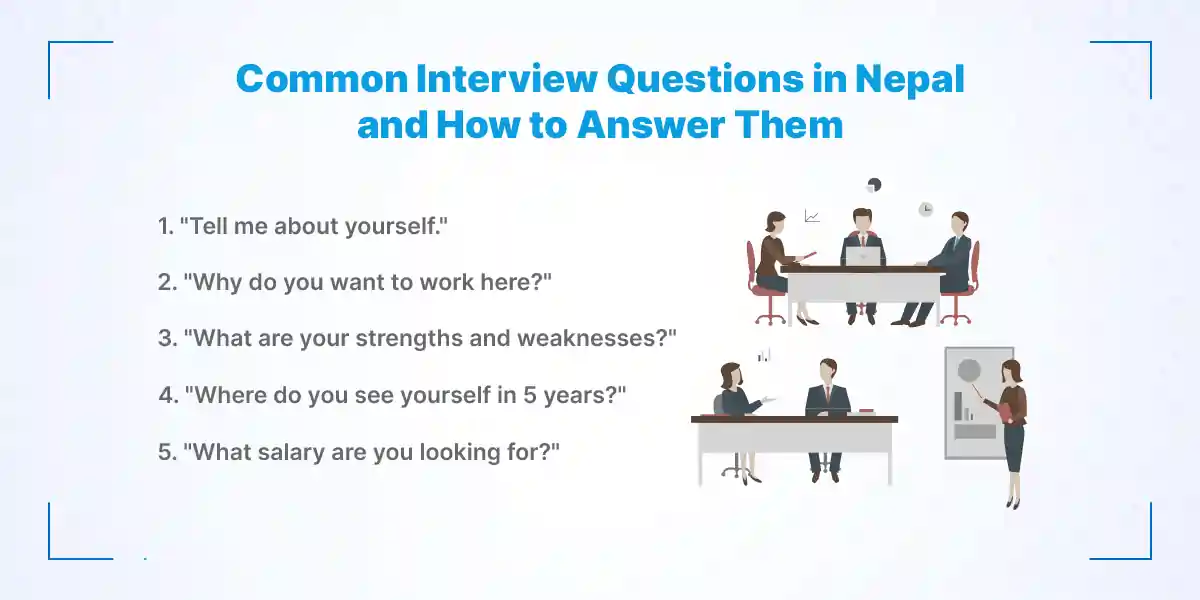
1. "Tell me about yourself."
This is typically the lead question in Nepali interviews. But many people make the mistake of reading aloud their entire CV or sharing irrelevant personal stories.
How to reply:
Offer a concise, short description of your history with a focus on education, skills, and work experience related to the job.
Example:
"I have completed my Bachelor's in Business Studies from XYZ College. I also completed a short internship in a finance company where I learned simple accounting tools. I would like to work in banking and improve my communication skills and customer care skills."
Answer the question under 1 minute in length, and always bring it around to the job you are applying for.
2. "Why do you want to work here?"
Here is where you get to show that you have done your research and actually care about the company.
How to respond:
Say something specific about the company and connect it with your goals or interests.
Example:
"I have been following your company for a while now and truly love that your company is interested in employing people. I also saw that you recently opened a digital platform, and since I come from an IT background with customer service, I would be excited to be a part of the growth."
Never say "Because I need a job" or "It is close to my area."
3. "What are your strengths and weaknesses?"
This is where you exhibit self-awareness. Don't mention "I'm hardworking." Give examples.
How to respond to strengths:
Select 1–2 strengths along with examples.
Example: "I can manage pressure. My final exams were underway, and I was also planning a college event, and I managed both fine with effective time management."
How to respond to weaknesses:
Tell the truth, and also mention what you're doing to improve them.
Example: "I used to get nervous about public speaking, but I've been attending workshops and slowly building my confidence."
Don't say "I have no weaknesses" or say a weakness that's actually a strength (e.g., "I work too hard").
4. "Where do you see yourself in 5 years?"
This is an ambition test to determine whether you plan to stay with the company.
How to answer:
Set a realistic goal that is consistent with your career and shows improvement.
Example:
"I would like to be in charge of a team or project in 5 years, learning more and taking on greater responsibility."
Try to connect your aim to the growth of the company, if possible at all.
5. "What salary are you looking for?"
This question can seem confusing to answer. Don't ask for too much or too little.
How to answer:
If you are a fresher, it is acceptable that you say you are open to company norms. If you are experienced, give a range based on industry standards.
Example (for freshers):
"I'm more excited about learning and enhancing my skills at this stage. I am open to the company's salary structure for freshers."
Example (with experience):
“Based on my skills and 2 years of experience, I’m expecting somewhere between NPR 35,000 to 40,000, but I’m open to discussion.”
Always sound flexible; not demanding.
Tips to Impress Your Interviewer
33% of interviewers know within the first 90 seconds of an interview whether they will hire someone. That means first impressions matter a lot. From how you walk in to how you speak, sit, and listen, everything adds up fast. But don’t worry; you don’t need to be perfect. Just following a few simple tips can help you stand out and leave a strong, positive impression.
1. Be Punctual and Respectful
Showing up on time means that you are responsible, dedicated, and respectful of other people's time. If your interview is at 10 AM, try getting there at least 10 to 15 minutes early. This also gives you time to relax, tie up loose ends, and get ready mentally. If it is an online interview, log in 5 minutes early and make sure your internet and camera are in good condition. Also, be respectful to all, from the receptionist to the security guard. You never know who's observing.
2. Maintain Good Posture and Eye Contact
Your body language says a lot about your confidence. Sit upright and be confident. Look at the interviewer when you're speaking, but don't stare at them too hard. A little eye contact is sufficient to show that you're listening and confident. If it's a video interview, look into the camera when you're speaking, not straight at the screen. Smiling makes you seem friendly and relaxed.
3. Keep Answers Clear, Concise, and Structured
Many Nepali applicants give long, confusing responses. Interviewers don’t have time to listen to the whole thing. Start with a summary concept, offer a small example or explanation, and then stop. Do not repeat the same point. A well-organized answer demonstrates that you think critically and respect the interviewer's time.
4. Ask Thoughtful Questions About the Company or Job
At the end of any interview, the interviewer will ask, "Do you have questions for us?" Always say yes. Asking questions shows that you're actually interested in working at the company. You could ask questions like: "What's a typical day like in this role?" or "What are the biggest issues your team is facing now?" Avoid asking salary or vacation questions here. Those can be saved later, if you're offered the position.
Which Mistakes to Avoid During an Interview in Nepal?
To avoid failing an interview for jobs in Nepal, don't show up late, don't use slang words, do company research properly, and be ready with answers to common interview questions. These small mistakes happen more often than you might think, and they can easily cost you the job.
Let's break each down and examine how to avoid them.
1. Not Being on Time
One of the most common mistakes you can make is arriving late. Arriving late is a bad impression. It indicates you're not serious, not responsible, or just irresponsible.
How to prevent:
If it's a face-to-face interview, plan your route the evening before.
Plan ahead to leave early, keeping traffic and delays in mind.
If it's a virtual interview, test your internet, camera, and battery at least 15 minutes in advance.
Try to arrive or get to the place 10–15 minutes ahead of the given time.
Arriving on time demonstrates respect and responsibility, two things that all employers appreciate.
2. Speaking Too Casually or Negatively
Even if the interviewer seems friendly, remember it's still a professional setting. If you're too casual with your tone, use slang, or are too informal, you'll be seen as unprofessional. Never ever talk negatively about your previous job, boss, or college. It doesn't look good for you.
How to avoid it:
Speak politely, but clearly. Be confident in your voice, but not like you're speaking to a friend.
Avoid saying things like "I hated my last job" or "My previous boss was terrible."
When asked about obstacles or previous experience, be factual and talk about what you gained from the experience.
Keep the tone respectful and positive throughout the interview.
3. Lack of Adequate Knowledge About the Company
Let's say you appeared at an interview without knowing anything about what the company does. Sad to say, this still happens a lot in Nepal. Employers expect you to know at least the basics about where you are appearing. If you don't, they will assume you are appearing blindly, not out of concern.
How to avoid it:
Spend 10–15 minutes on the company's website.
Read through their services, projects, or latest updates (if available).
Visit their Facebook or LinkedIn pages.
Attempt to learn what they do and what they believe in.
Then, apply to the interview time when you can organically mention something you discovered. It demonstrates interest, preparation, and initiative.
4. Failing to Prepare Common Answers
There are some basic common questions that are asked in almost every interview in Nepal. If you don't prepare for your answers, you might get stuck or say something that doesn't help you. Saying "Umm. I don't know" or "That's a tough question" too often will make you look unprepared for the interview.
How to avoid it:
Prepare answers to common questions such as:
"Tell me about yourself.”
"Why do you want to work here?"
"What are your strengths and weaknesses?"
"Where do you want to be in 5 years?"
Write down a few bullet points for each question.
Practice speaking out loud, but don't memorize word-for-word. Just have the main ideas down.
Why Do Interviewers Reject Candidates in Nepal?
Nepalese interviewers reject candidates based on poor communication, lack of clarity, poor first impressions, incompatible expectations, and unprofessional dressing or attitude. Even eligible candidates are excluded if they do not notice these small but significant details.
Let's explore the common reasons for candidates' rejection and how you can avoid them.
1. Lack of Clarity or Purpose
The majority of applicants attend an interview without having a clear vision for what they want or why they are applying. They give general answers like, "I'd like to grow" or "Anything is fine." If you do so, it tells the interviewers that you are not genuinely interested or applying randomly.
How to avoid it:
Before the interview, ask yourself: Why do I want this job? What am I contributing?
Give solid responses in the interview. For example, "I'm joining this company because I want to build a career in online marketing, and your company is well-known for that sector."
Be honest but also focused.
Clear goals make you look bold and serious.
2. Poor Communication Skills
In Nepal, effective communication is important, particularly in fields such as customer service, sales, teaching, or banking. You don't have to speak flawless English with a great accent, but you do have to think clearly and confidently.
How to avoid it:
Practice speaking out in both English and Nepali if needed.
Avoid mumbling and using too many filler words like "umm," "like," or "you know."
Listen carefully to questions and answer patiently. If you are unsure about a question, it is okay to say, "Could you repeat that, please?"
3. Poor First Impression
First impressions matter. Surveys suggest that interviewers form their opinions within the first few minutes of whether you are the right person or not. If you walk in lost, unprepared, or bored, that minute might cost you the job.
How to avoid it:
Dress in the appropriate and neat attire for the position.
Smile and greet with a respectful "Good morning" or "Namaste.”
Sit comfortably and make occasional light eye contact.
Stay confident. Also, don't use your phone while in an interview.
These small habits quickly signal that you're respectful and confident.
4. Mismatch with the Company's Expectations
You can be a quality candidate, but you might not be the best fit for the company's culture, work environment, or job role. This is when your values, goals, or behavior don’t match with what the company wants.
How to avoid it:
Do some research on the company before the interview.
Try to find what kind of employees they usually hire (formal, creative, team-oriented, etc.).
Ask, "What is the work environment like?" or "What are the characteristics you seek in a team?" in the interview.
5. Unprofessional Behavior or Attire
In Nepal, some level of professionalism is still expected, regardless of the industry. Showing up in shorts, being too casual, or being overly friendly can all be taken as warning signs.
How to Prevent it:
Wear clean, ironed, and appropriate clothes. Formal clothes are the best choice for banks, NGOs, and office work.
Speak to them politely, even if the interviewer is being casual.
Don't interrupt, complain about your old jobs, or use slang.
Say "thank you" afterwards.
Follow-Up After the Interview
Your job is not complete once the interview ends. Following up after an interview is equally crucial. The little thank you note or simple follow-up can make you stand out and remind the employer that you're still interested. But you've got to do it in the right way without looking desperate.
Let's analyze what you can do:
1. When to Send a Thank You Message
It's a good idea to follow up with a thank-you note within 24 hours of the interview. It's respectful and professional. Keep it short and polite. You can do it as an email or even as a message on LinkedIn (if that makes you feel comfortable). Here's an example:
2. How to Follow Up Without Being Desperate
If you don't hear back in a few days, then you can send a polite reminder after 5–7 days. Keep your tone professional and friendly. Don't ask "Did I get the job?" explicitly. You can mail asking for any updates regarding the interview. This keeps the communication open without sounding like you are begging for a job.
3. What to Do If There Is No Response After 1–2 Weeks
If even after 1–2 weeks you don't get a response, it's okay. Sometimes it happens that the company takes its time to respond, or possibly they have already chosen someone but have not informed other candidates yet. You can send one last courteous follow-up. If you still don't get any response, just forget about it and go on applying to other jobs. Take it as a learning experience. Go over what you did right during the interview and how you can do better next time. Not hearing back is something that happens to everyone. It's not necessarily your fault. Be positive and keep moving forward.
Conclusion
Interviews in Nepal can leave you a bit nervous at first, but with good preparation, anyone can excel. Just take care of the basics, know the company, have a clear idea about the job, keep yourself clean, and communicate well. Be polite, confident, and honest. Even if not selected, every interview is a learning experience. The more you practice, the better you'll get. Do not lose hope. Keep smiling, keep improving, and keep trying. Your next interview could be the one in which you are hired!
Want to build a career in design? Join our UI/UX training in Nepal with Kumari Job and start your journey toward real job opportunities.


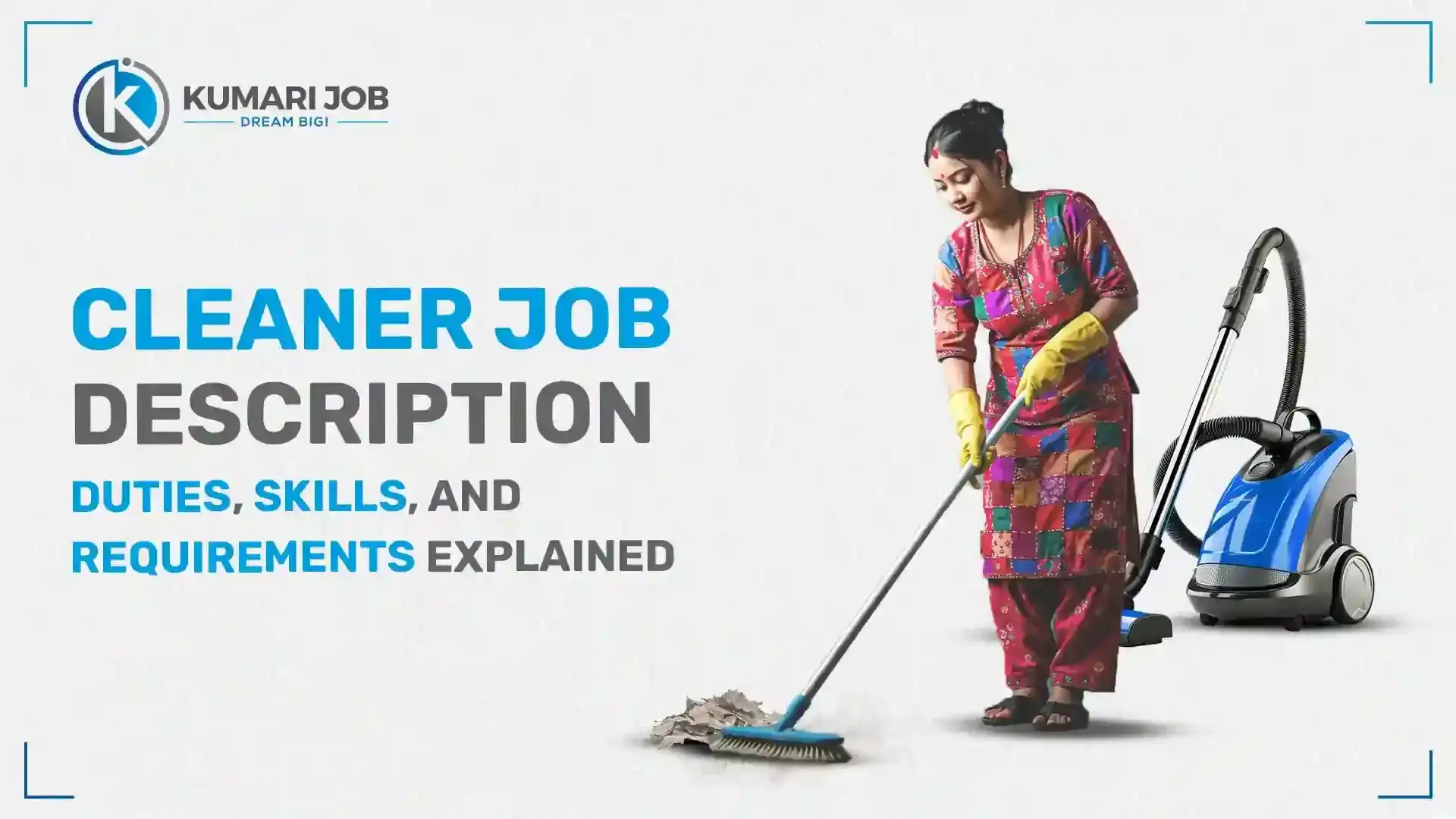

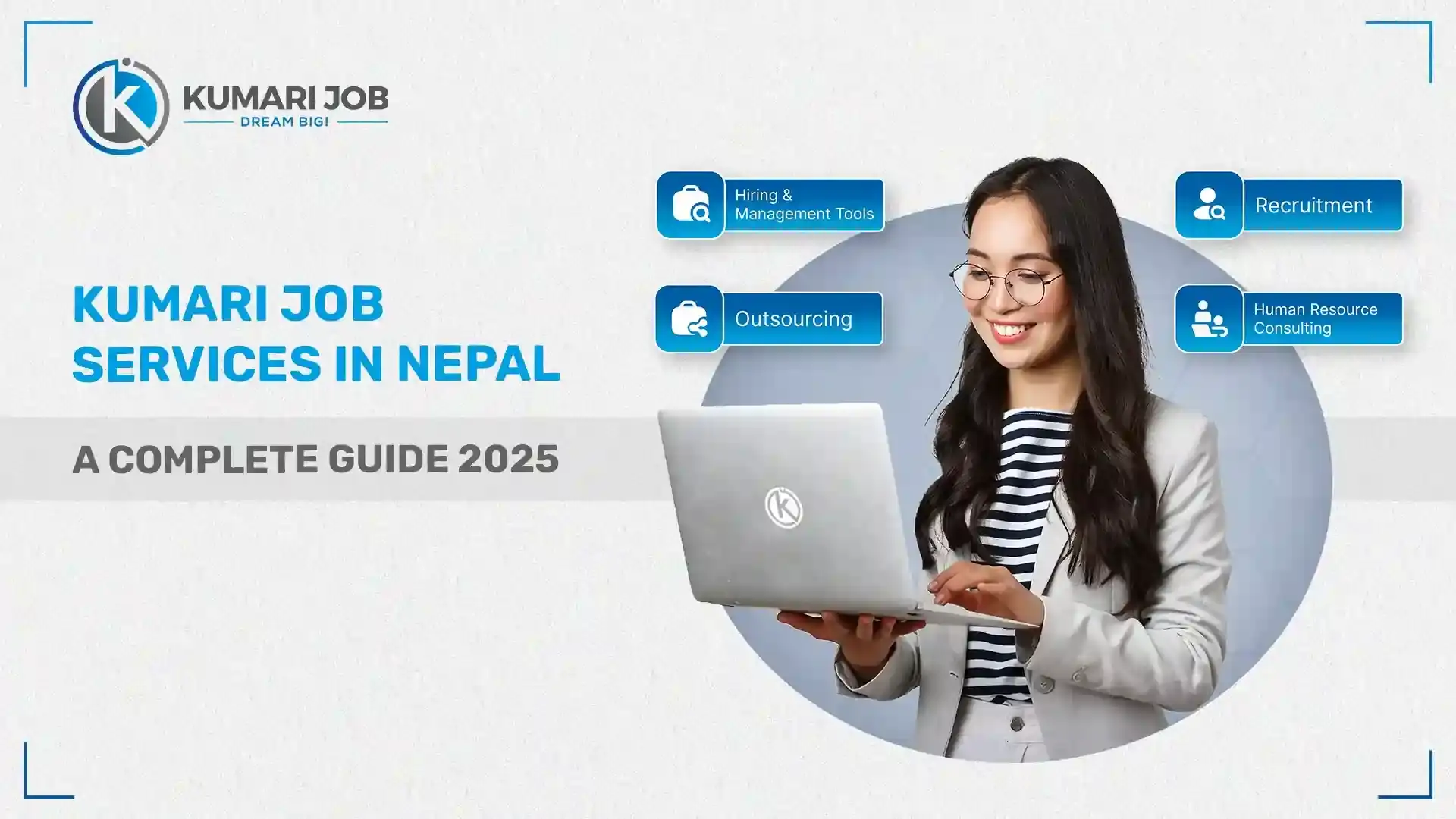

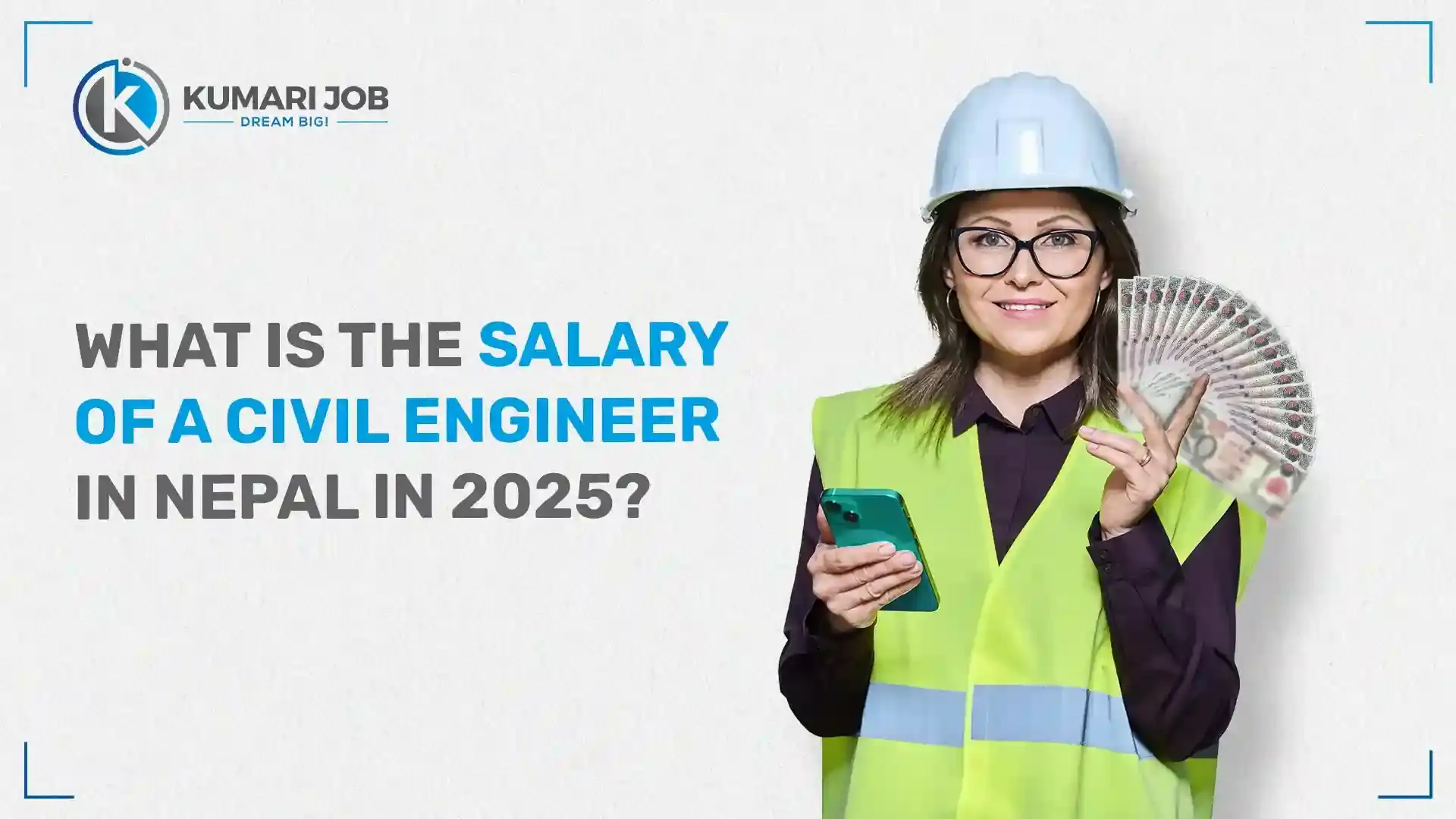
Loading Comments...